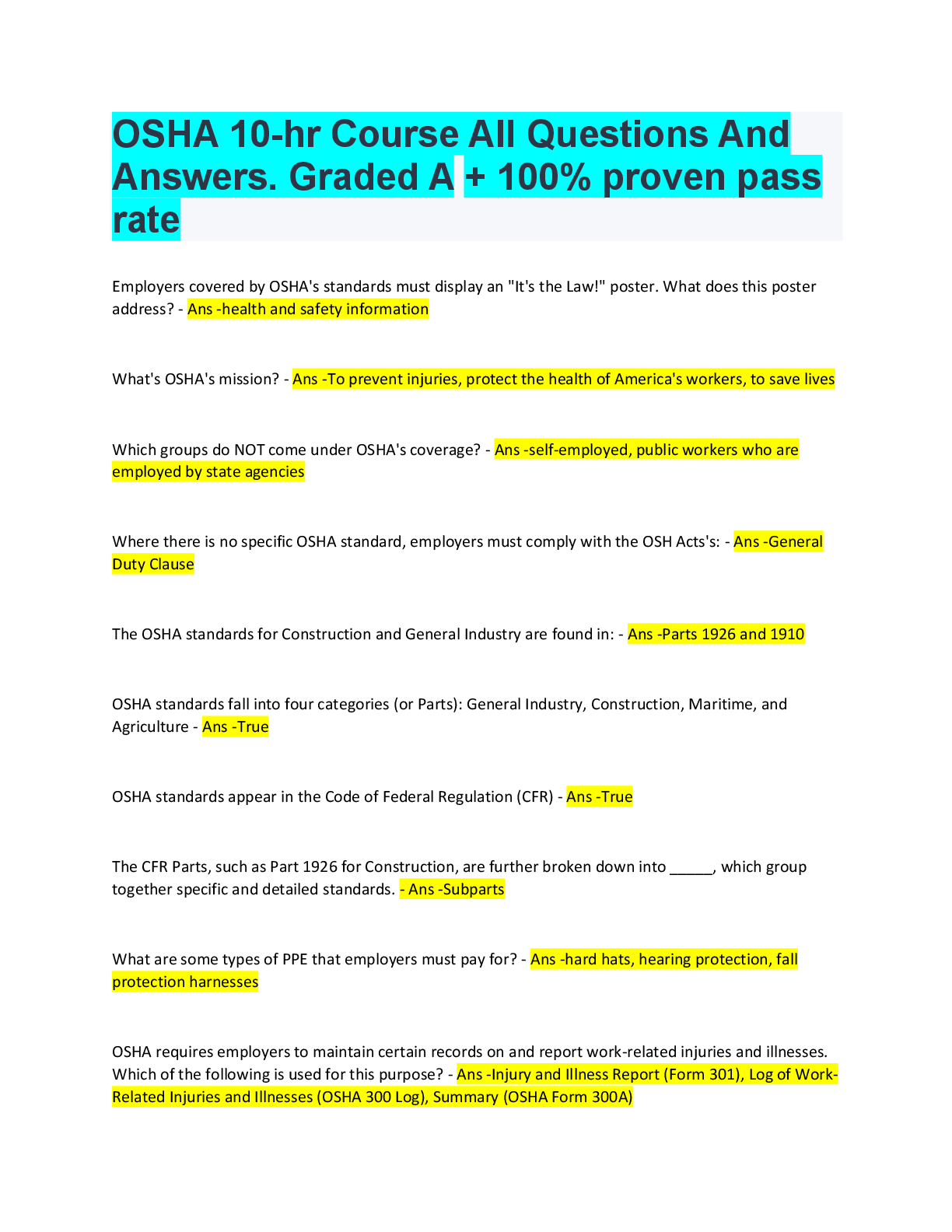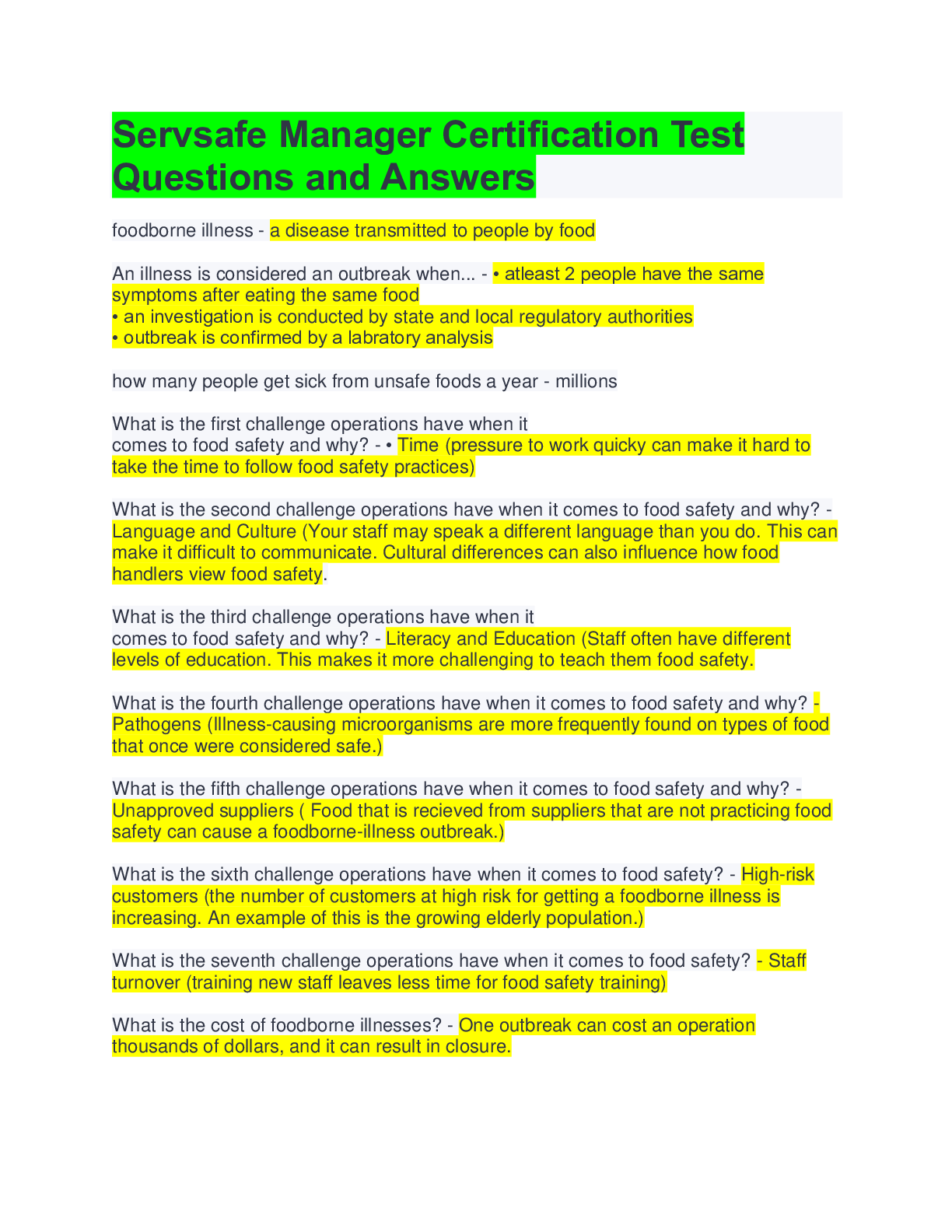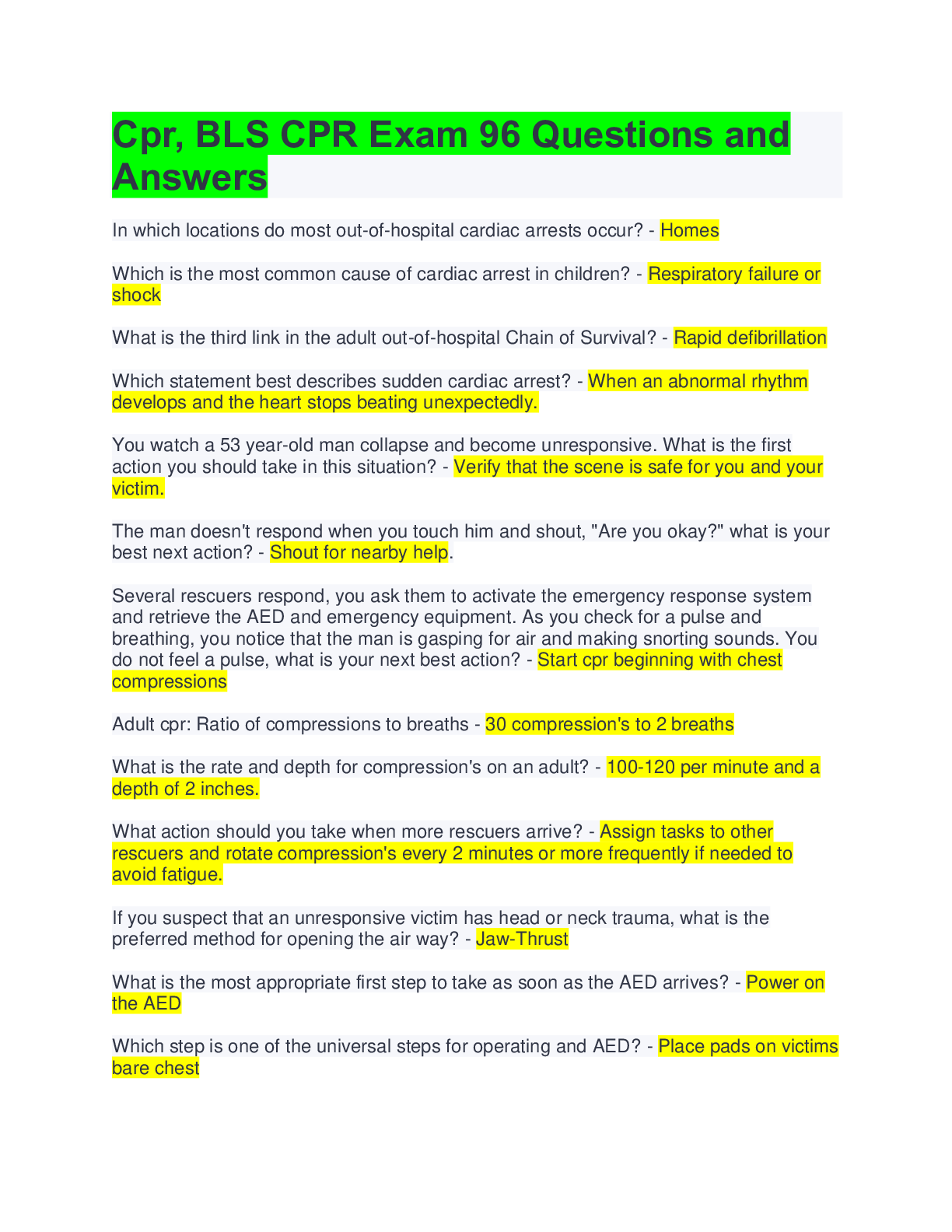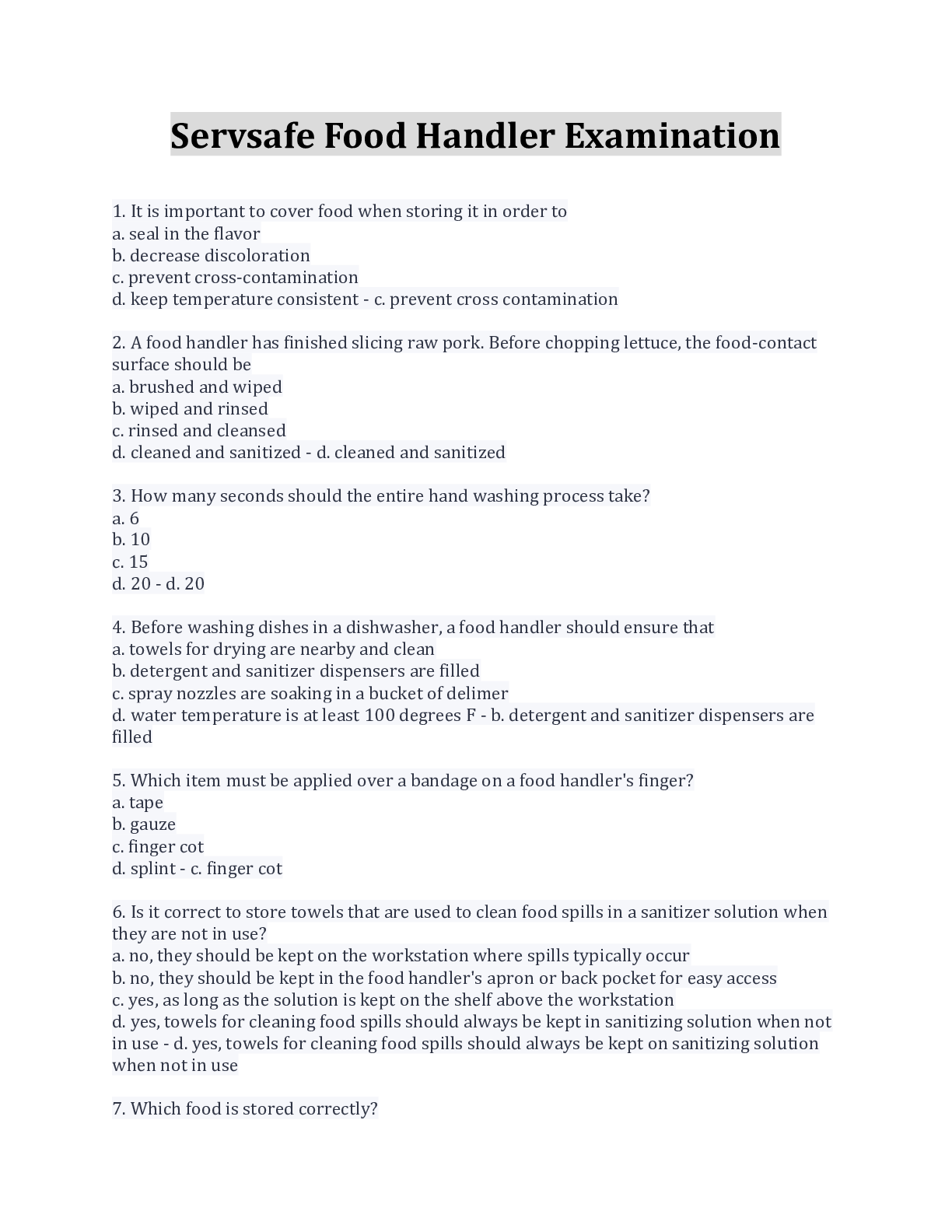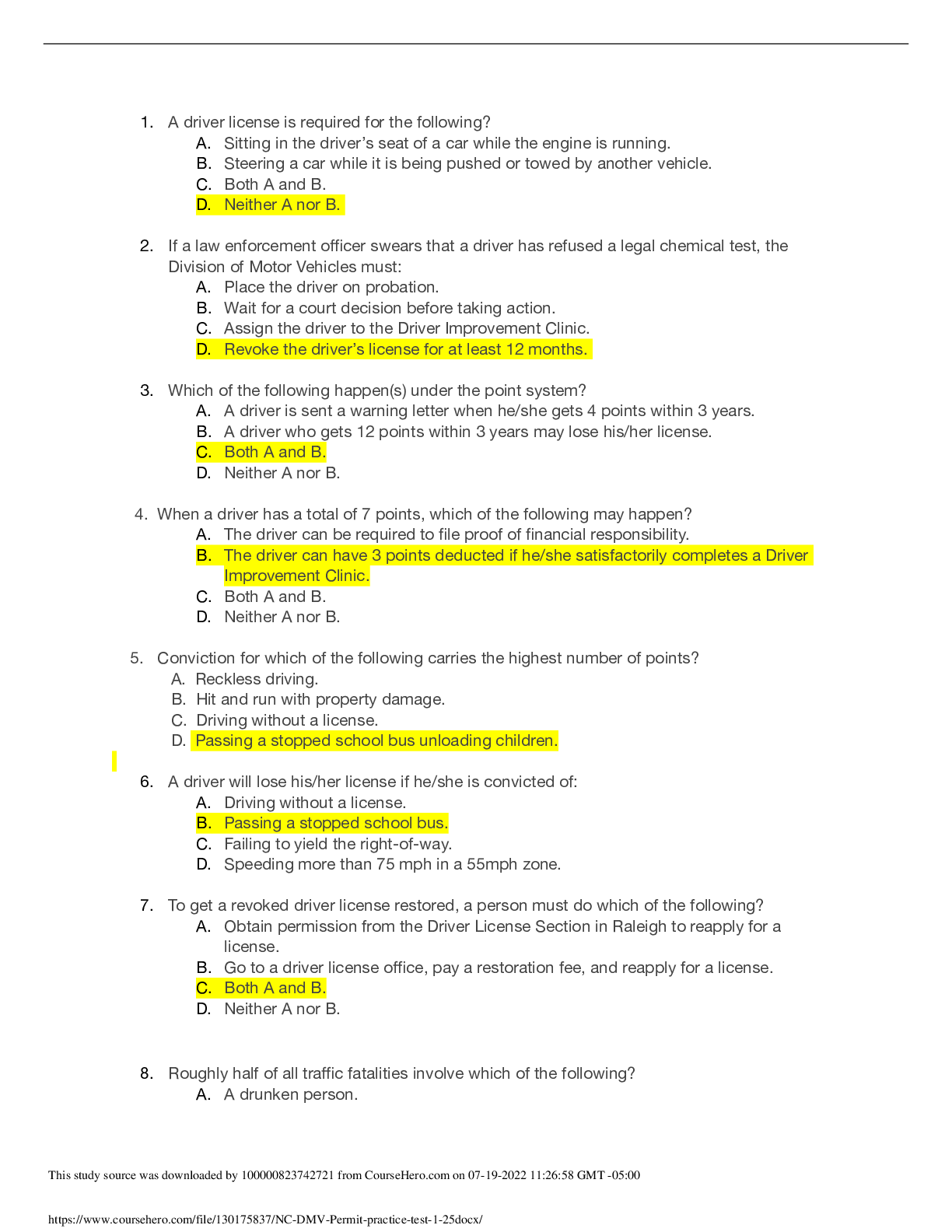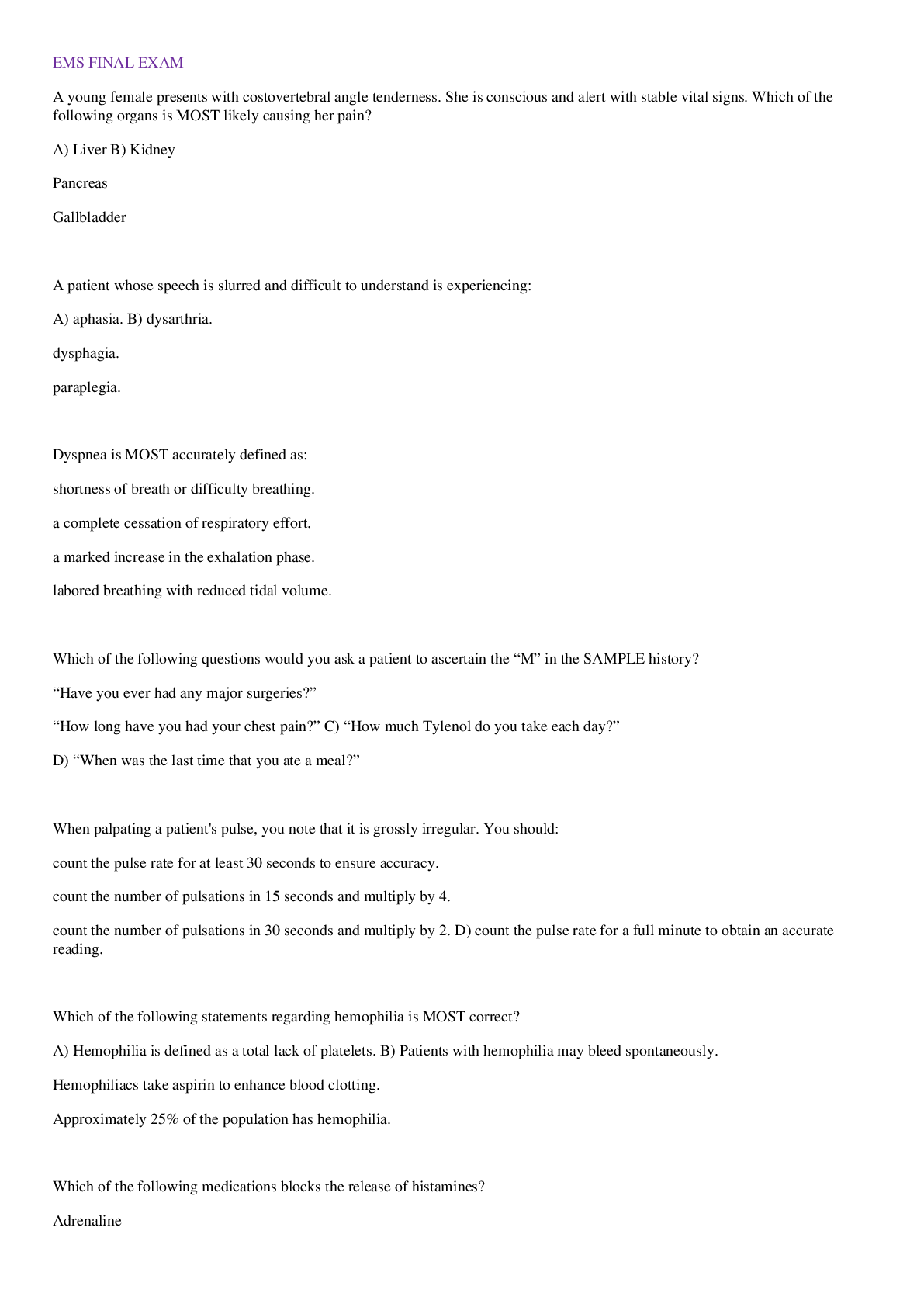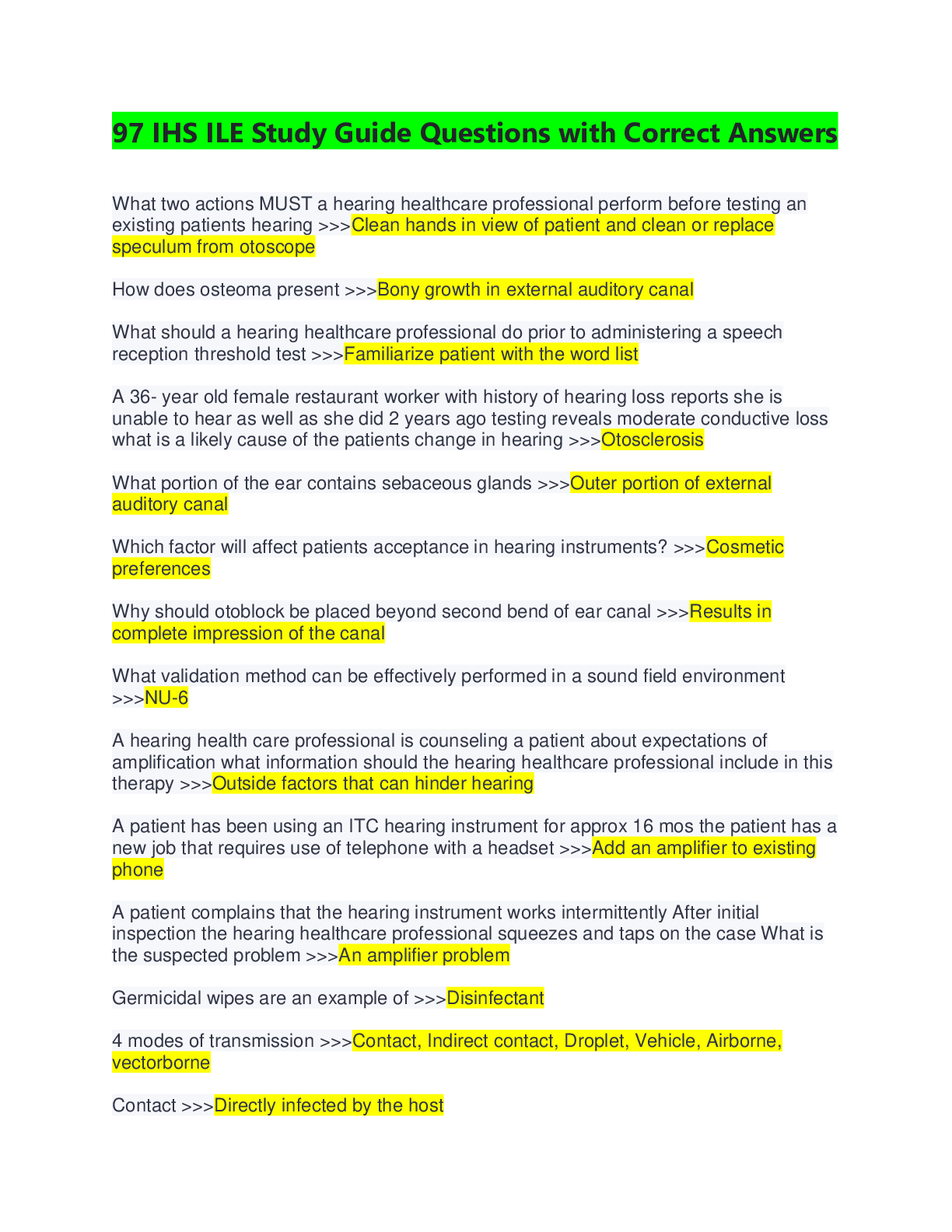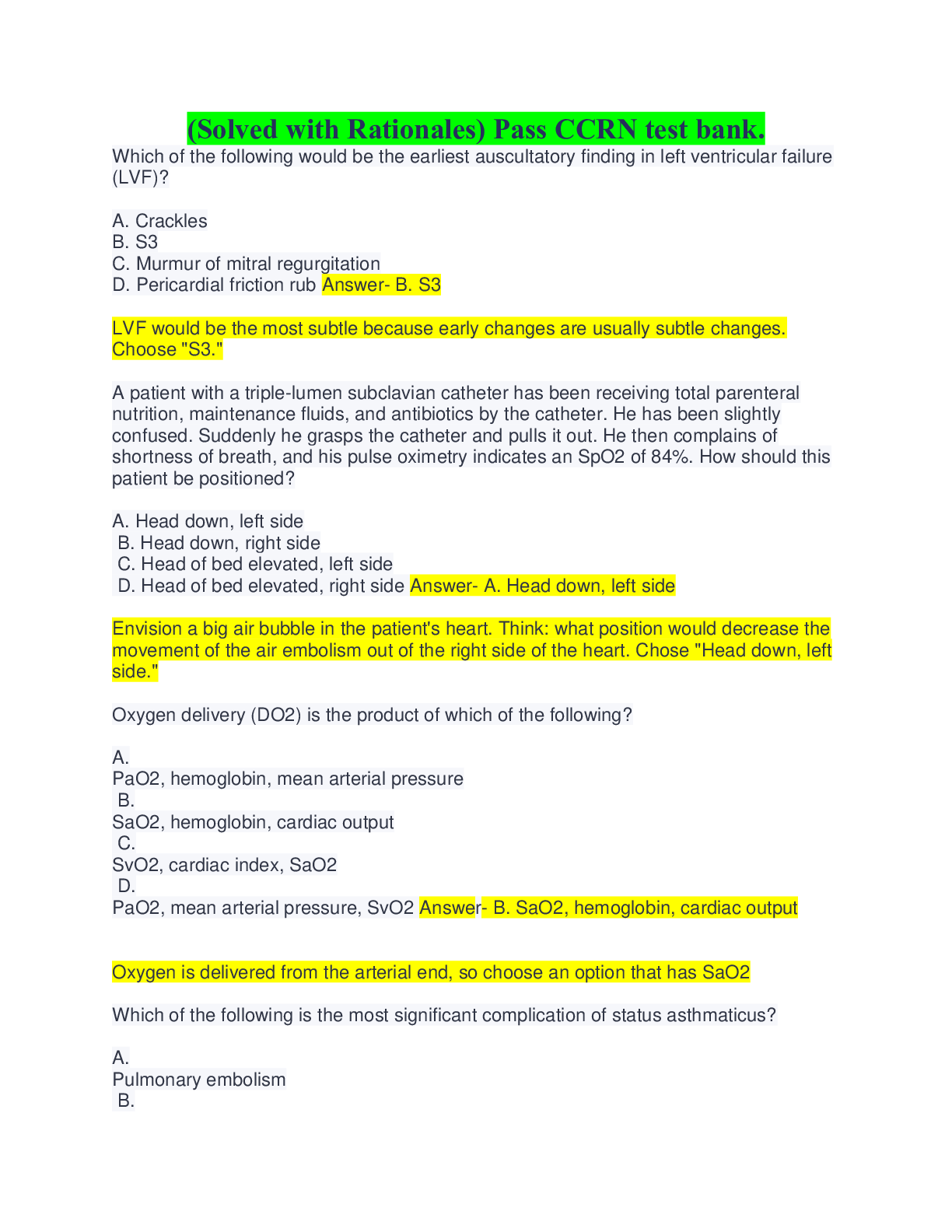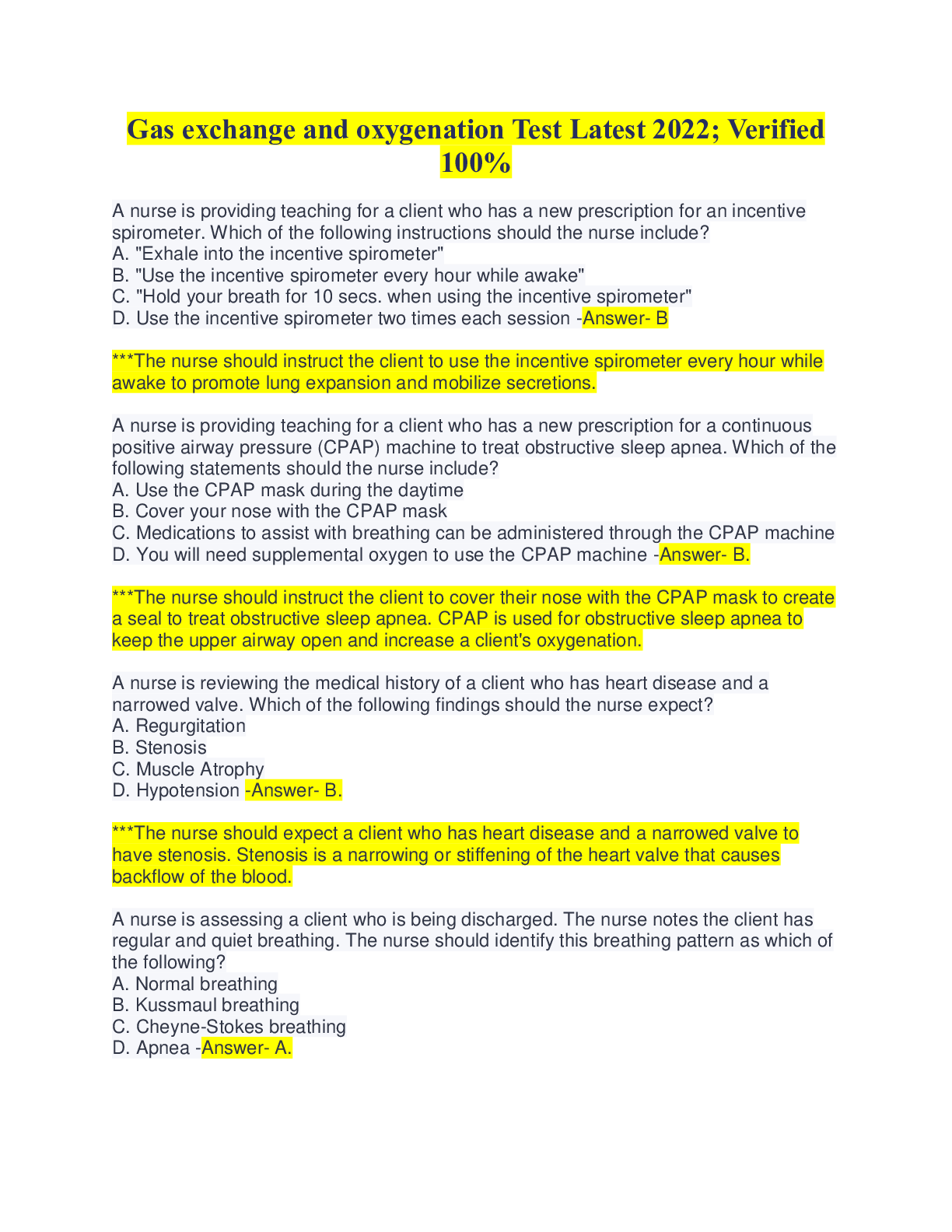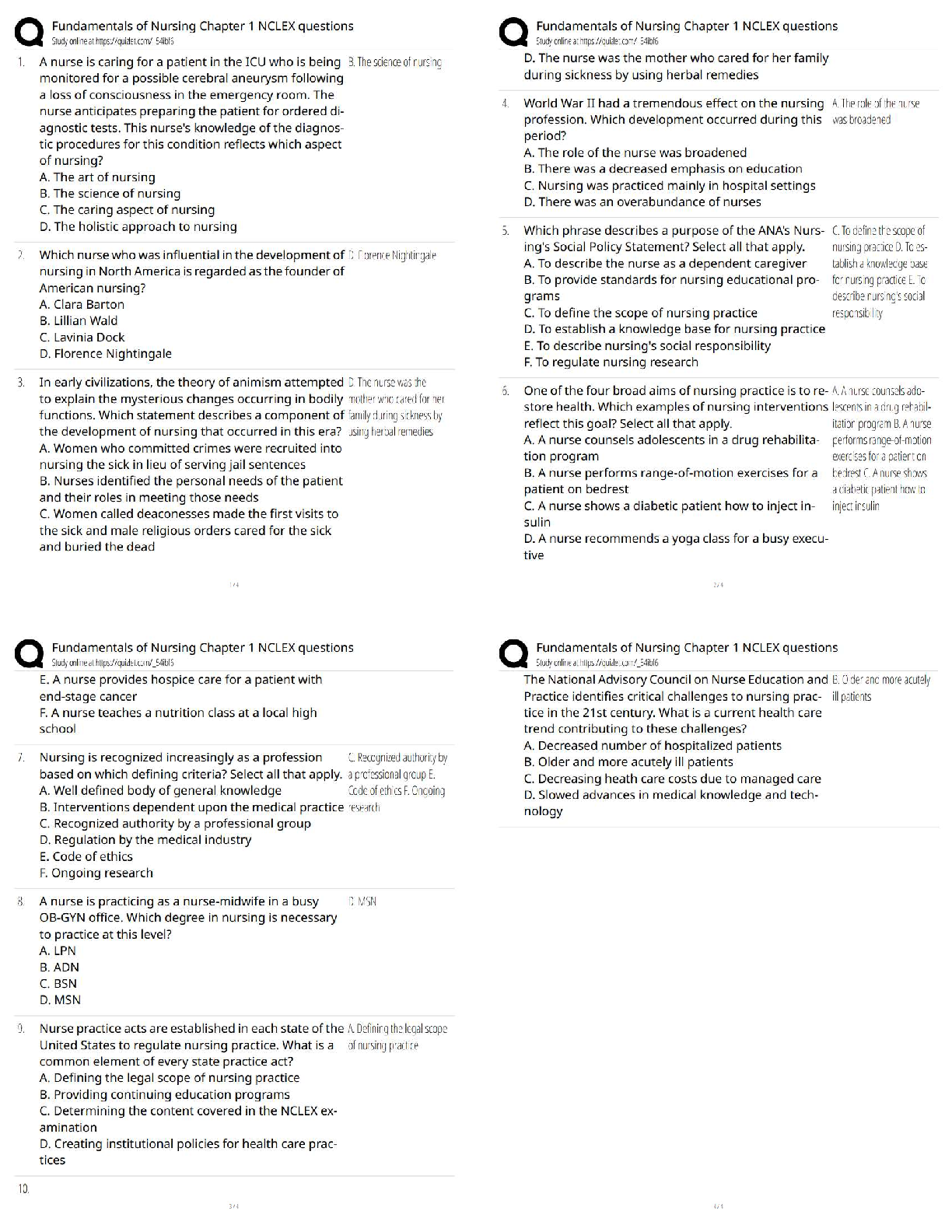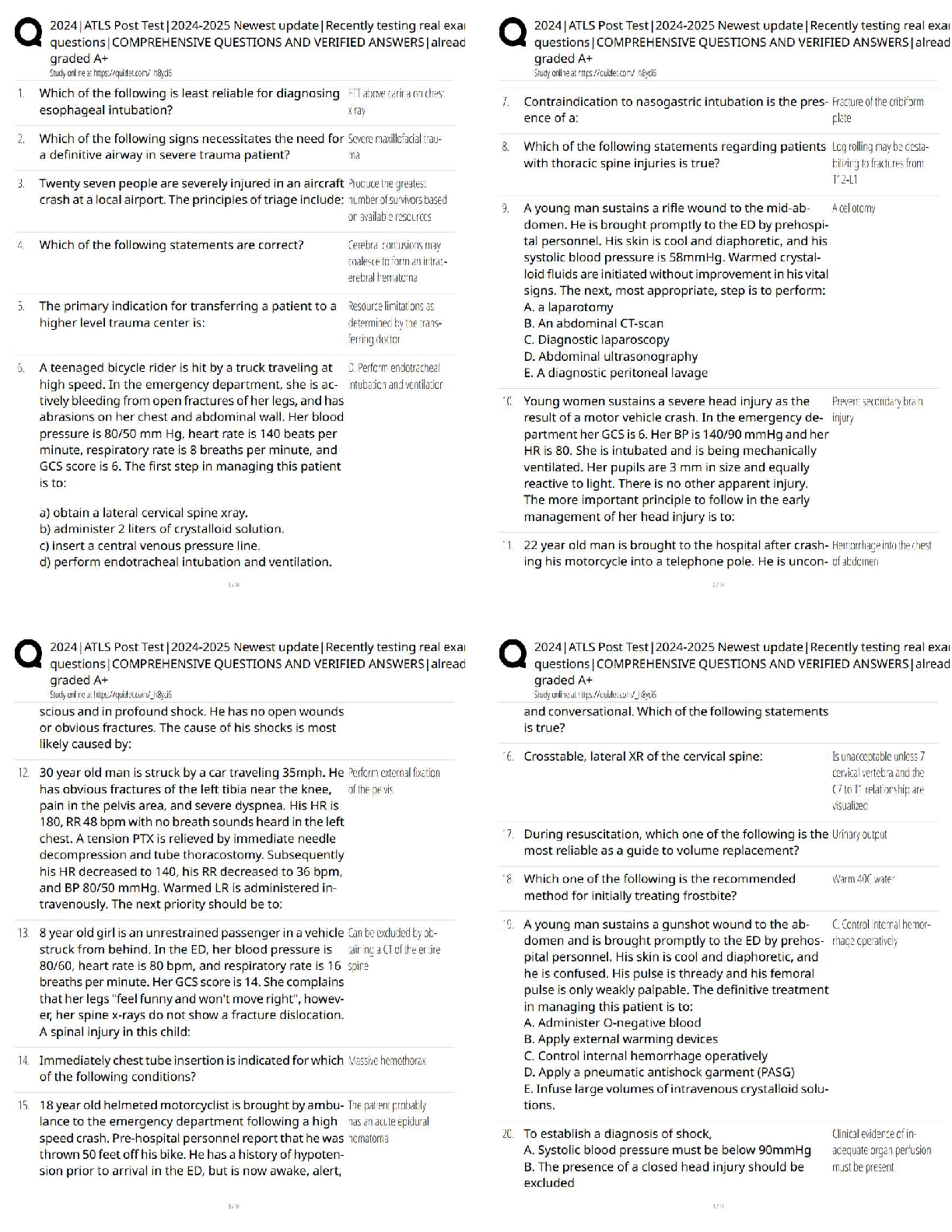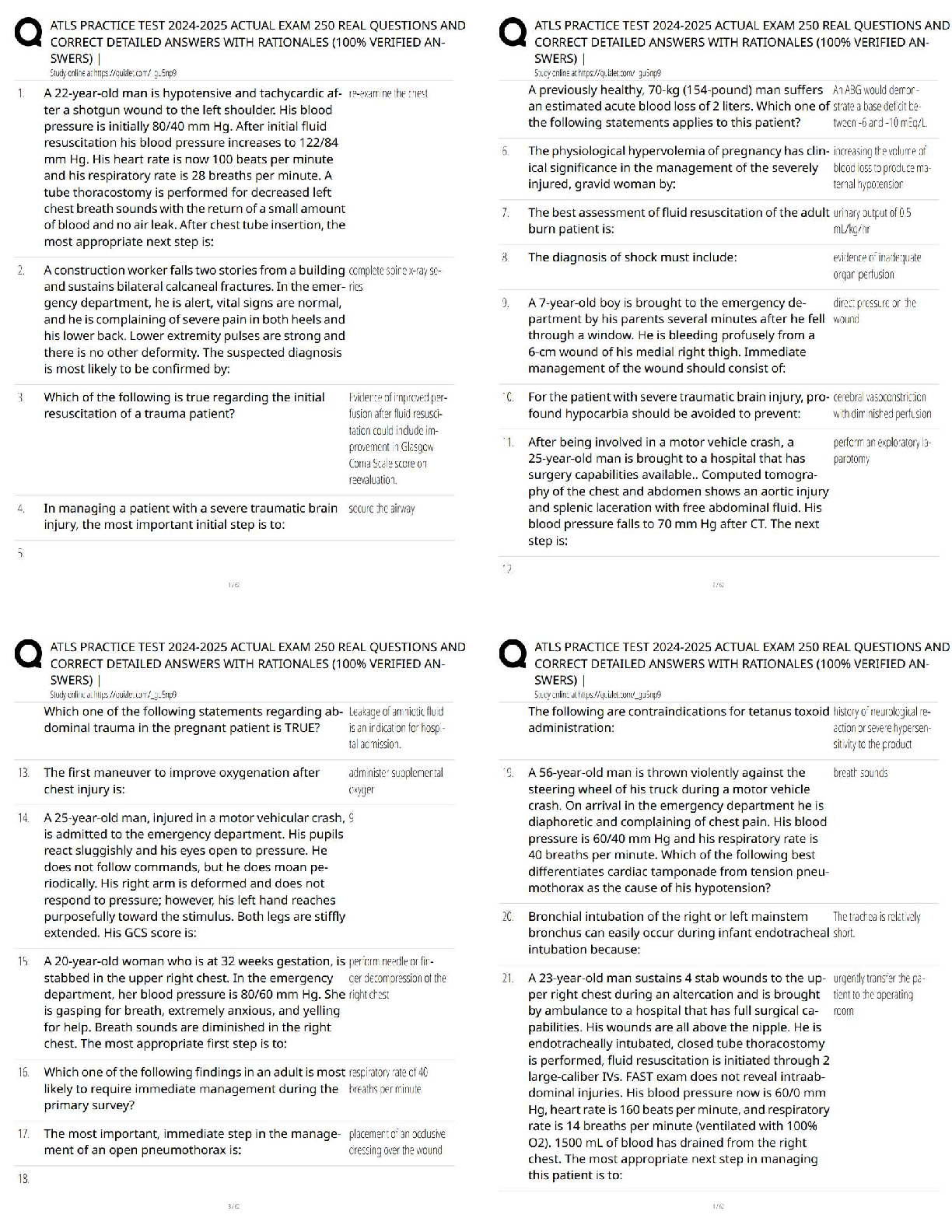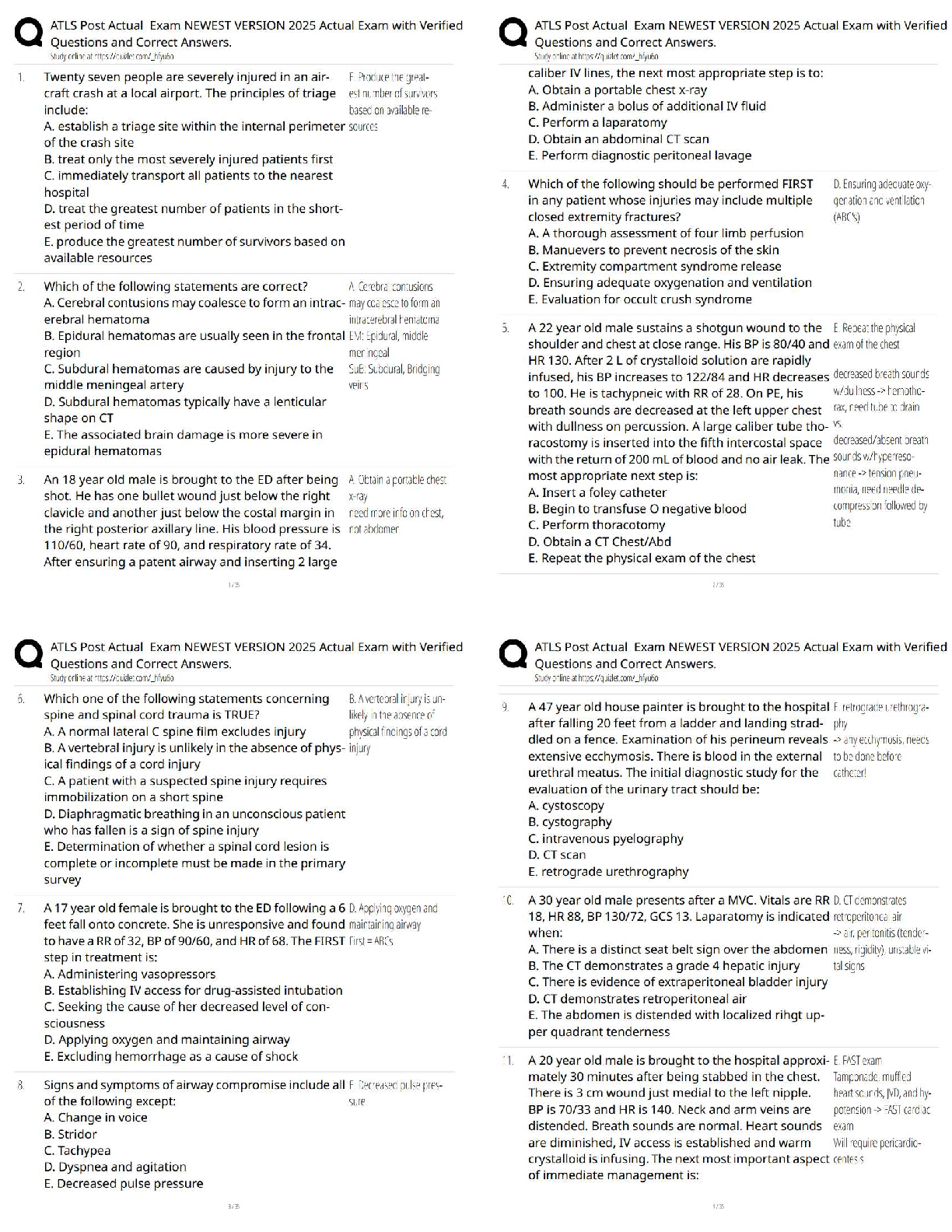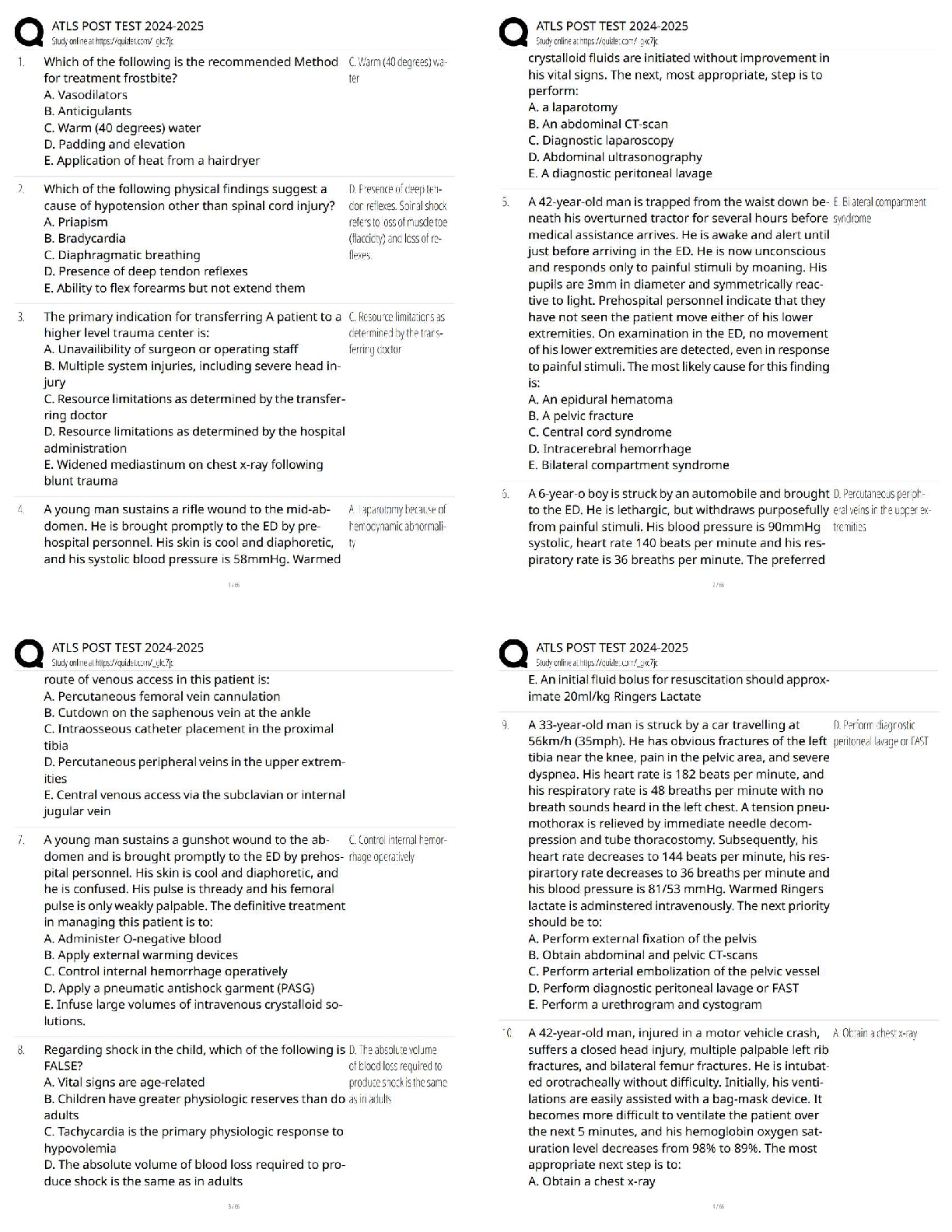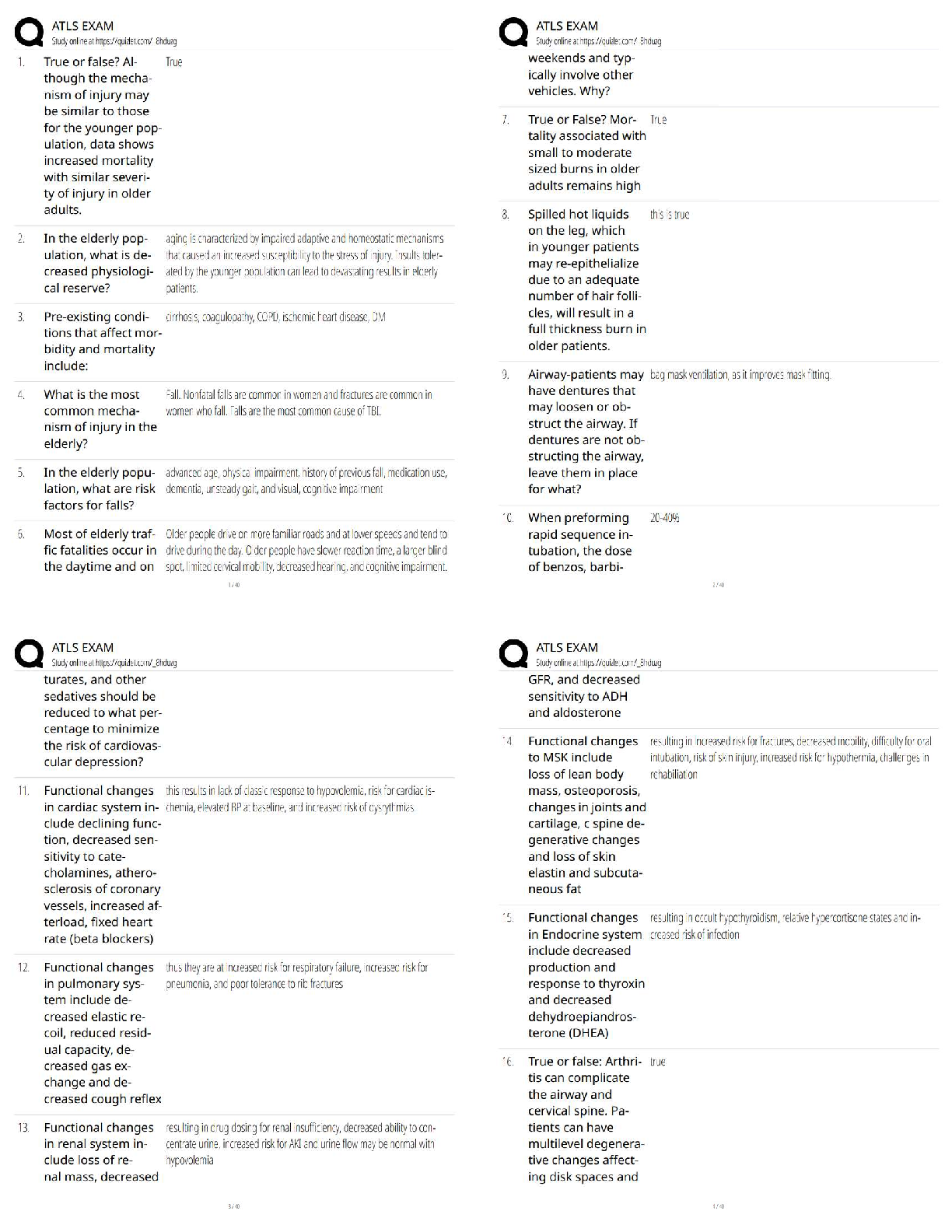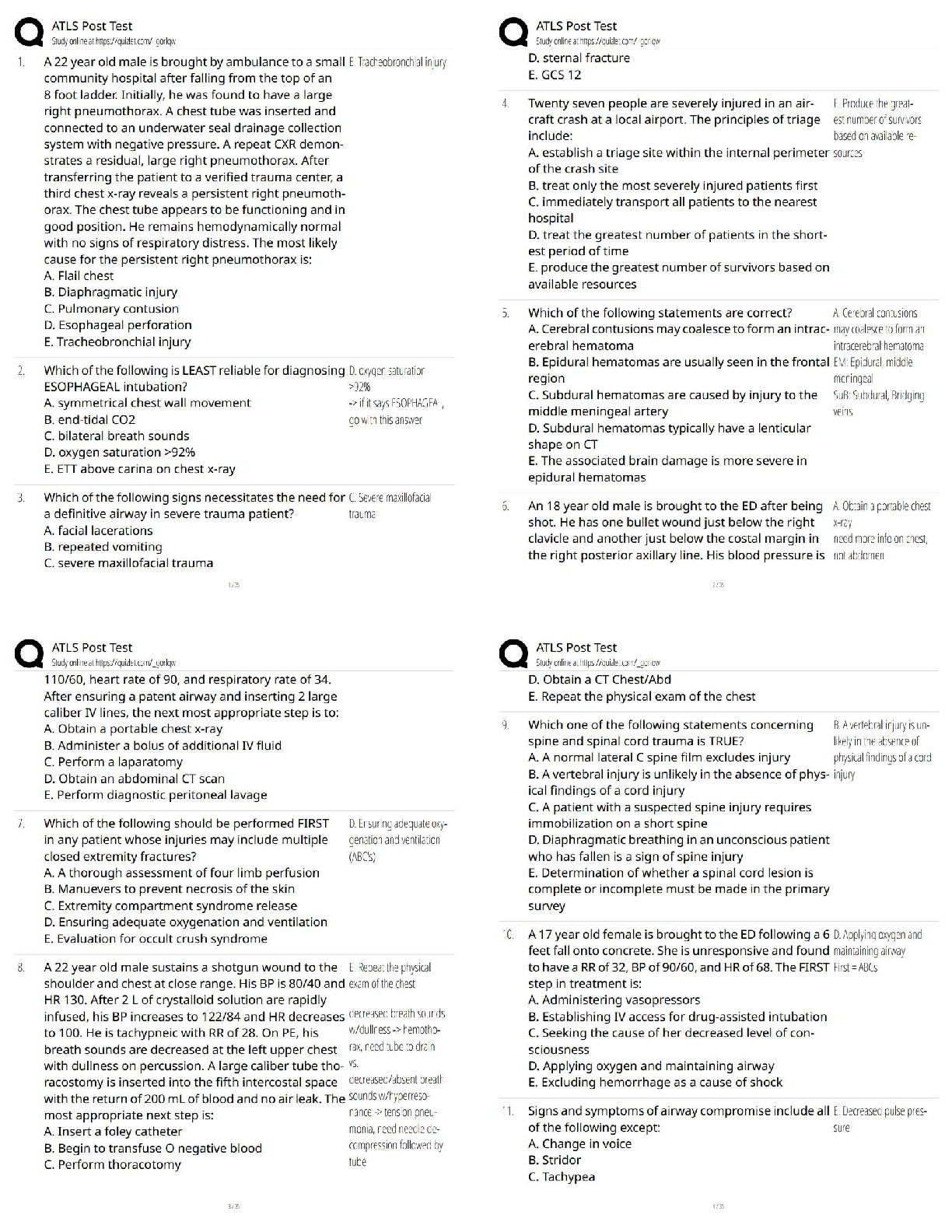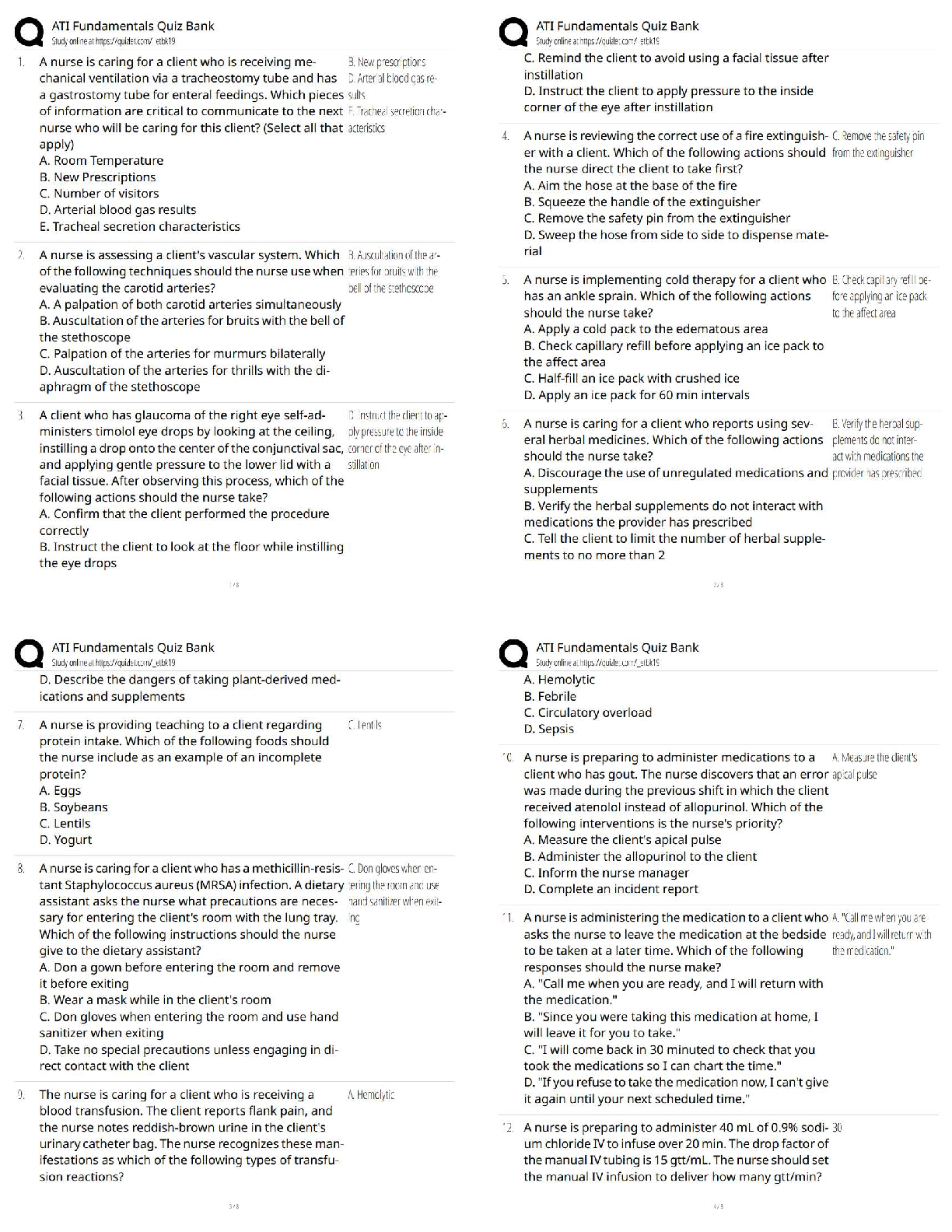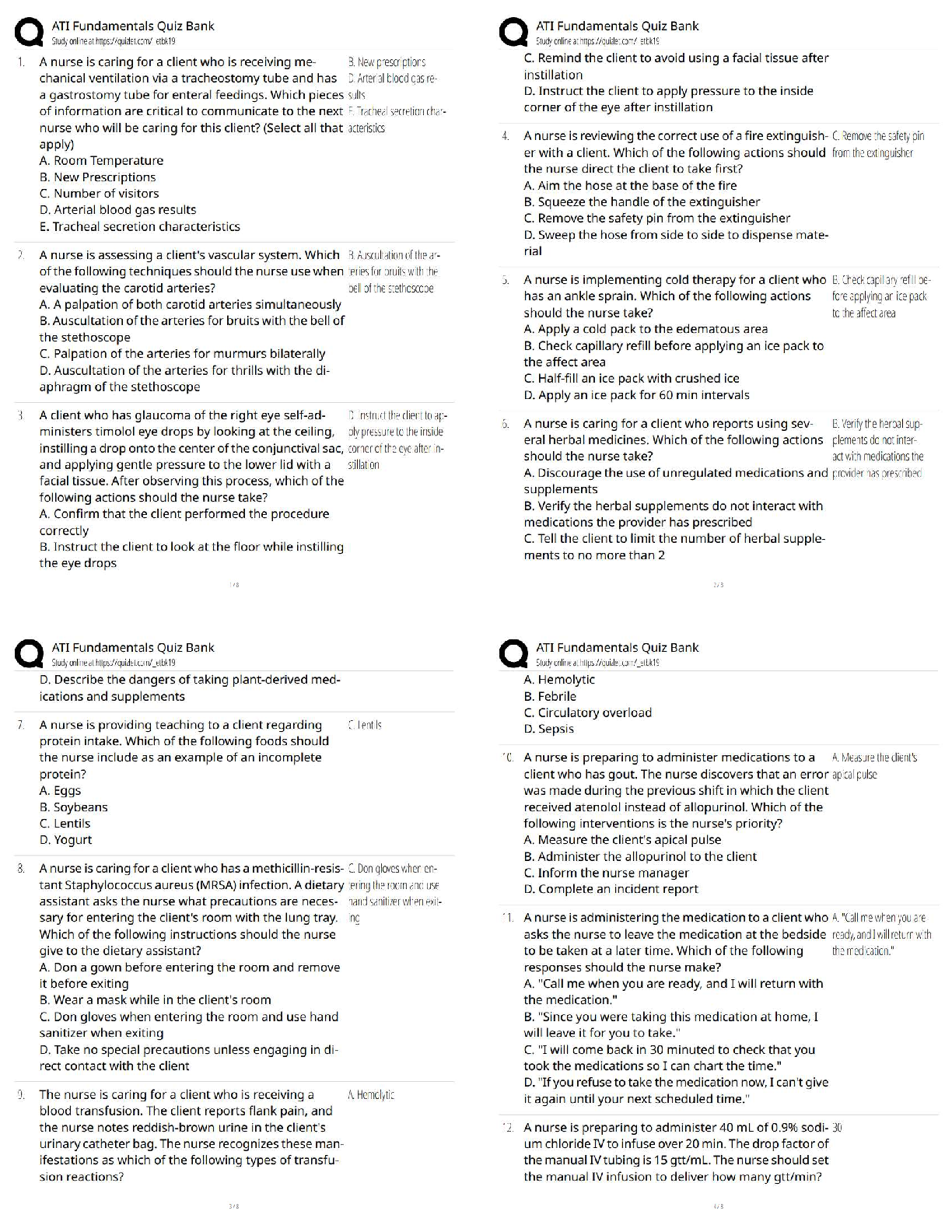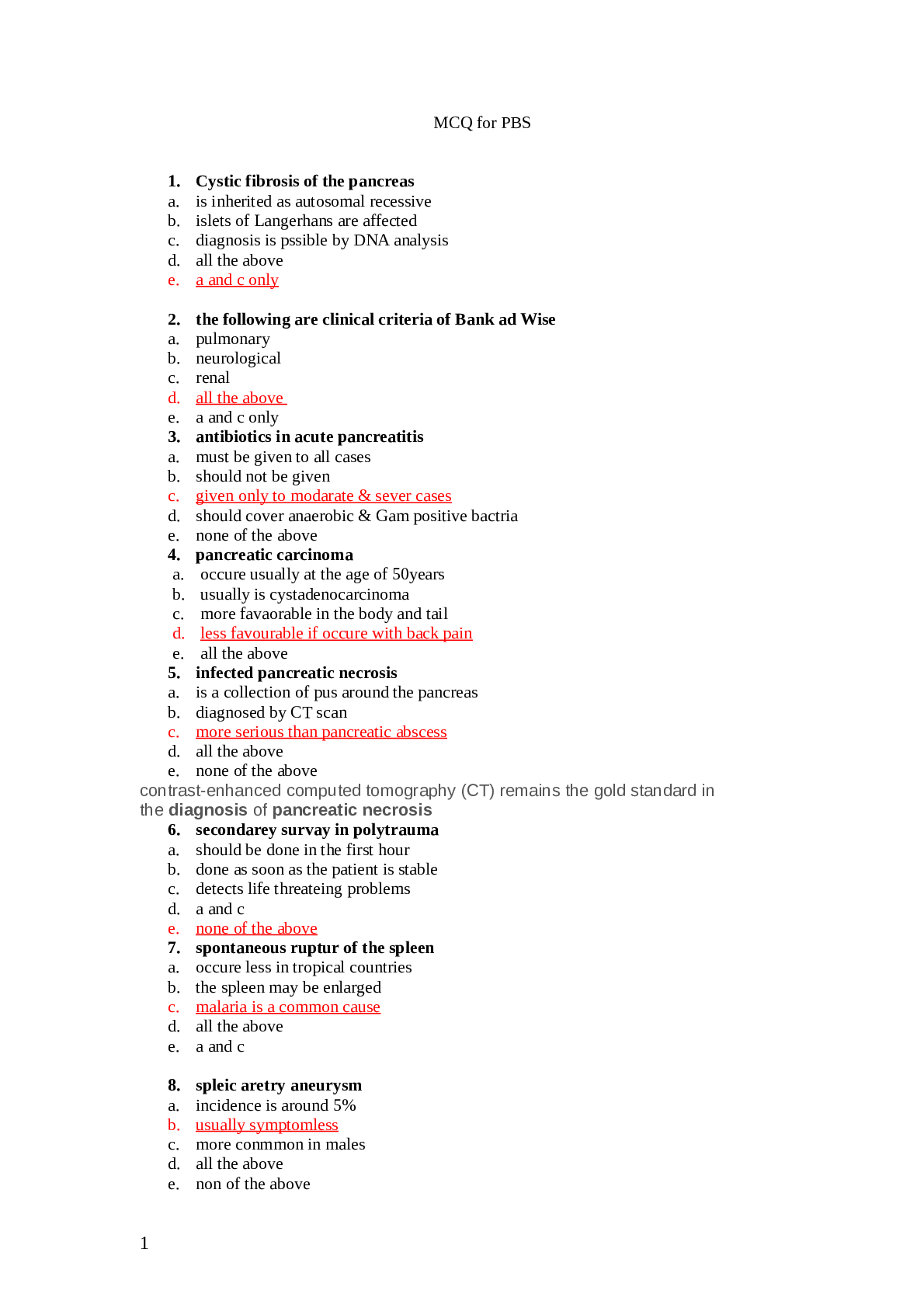RMI 2302 Exam 1 Nyce 2022 with complete solution
Risk -Answer- Uncertainty regarding loss. There are different magnitudes of risk based on the decision maker: individual, organization, and society. Danger does not equ
...
RMI 2302 Exam 1 Nyce 2022 with complete solution
Risk -Answer- Uncertainty regarding loss. There are different magnitudes of risk based on the decision maker: individual, organization, and society. Danger does not equal risk. Information does not alter risk.
Uncertainty -Answer- When you do not know the outcome, there is uncertainty. Multiple outcomes can also lead to uncertainty. Uncertainty is doubt about our ability to predict future outcomes. Because uncertainty is subjective, it can differ across individuals even when the risk is the same. Information can alter uncertainty. Reduction in uncertainty can be a good thing.
Loss -Answer- what you could have had, but don't, can be considered a loss.
Risk Likelihood -Answer- Frequency - the probability that a loss can occur. This can be described as high, medium, or low.
Risk Impact -Answer- Severity - the potential effect that a loss could have if it arises. The magnitude can also be described as high, medium, or low.
Pure Risk -Answer- "will there be a loss or no loss?" There are clear expectations. These risks only involve two possible outcomes.
Static Risk -Answer- "is the risk changing through time?" These risks do not change through time.
Speculative Risk -Answer- "will there be a loss, no loss, or a gain?"
Dynamic Risk -Answer- the chances of something happening now and happening later are different. They change through time.
Fundamental Risk -Answer- risks that effect everyone / a large portion of the population at the same time.
Particular Risk -Answer- risks that effect individuals / a small group of people at a given time.
Core Risk -Answer- organizational level risk - these are directly associated with what an organization or business does.
Secondary Risk -Answer- organizational level risk - these have nothing to do with what an organization or business does.
Personal Risks -Answer- related to life, health, and safety on the individual level
Property Risks -Answer- related to the potential damage to physical property / material things / stuff
Liability Risks -Answer- having to take responsibility for your actions / inactions
Financial Risks -Answer- savings and investments
Intangible Hazards -Answer- attitudes or culture
Moral Hazard -Answer- behavioral changes - effects the frequency / severity of loss
Morale Hazard -Answer- indifference - effects the frequency / severity of loss
Societal Hazard -Answer- legal or cultural attitude - effects the frequency / severity of loss
Physical Hazards -Answer- property / tangible conditions (aka tangible hazards)
Risk Neutral -Answer- people who are indifferent towards risks. The value of risky situations is the expected loss or expected outcome.
Risk Averse -Answer- the general population is this - people who prefer to avoid risk. Willing to pay more than the expected loss to avoid the risk.
[Show More]



